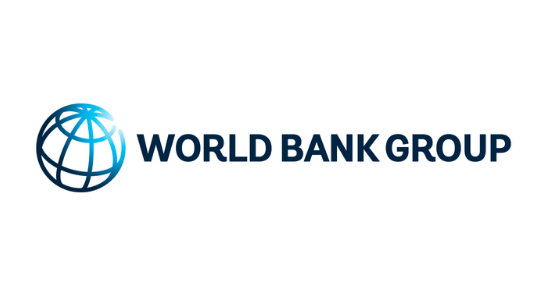Joint Civil Society Statement on the Hiring of the First Accountability Mechanism Secretary

The World Bank Group is about to hire its first Accountability Mechanism Secretary to lead the new Accountability Mechanism, which was recently created as an outcome of reforms to the World Bank Inspection Panel. It is critical that the Bank select someone who has (1) a demonstrated commitment to and experience with respecting communities’ rights and agency; (2) a demonstrated commitment to ensuring the independence of the Accountability Mechanism and Inspection Panel; and (3) prior dispute resolution experience; as well as (4) someone who embodies the World Bank’s commitment to diversity.
The World Bank Group’s independent accountability mechanisms are fundamental to the success of its mission to end extreme poverty. They offer a forum for communities harmed by World Bank projects to raise their concerns and seek redress. These processes should not only lead to remedy for communities, but also serve as an important source of learning for the institution so that future projects and programs can better avoid or mitigate harm to the very people it is trying to serve.
Since their creation, the Inspection Panel has received 137 complaints about World Bank projects, and the Compliance Advisor Ombudsman has received 359 complaints about International Finance Corporation and Multilateral Insurance Guarantee Agency projects, many alleging serious human and environmental rights violations, including displacement, environmental damage, negative impacts on community health, loss of livelihoods, increased pollution, and inadequate due diligence and consultations. The effectiveness and independence of independent accountability mechanisms are therefore critical to ensuring that communities most affected by project decisions have a voice in decision making and to inform the World Bank Group of unintended project impacts.
The Accountability Mechanism Secretary is a new and difficult role. The Secretary will oversee a newly created office, responsible for dispute resolution and a wide range of administrative responsibilities. That office will host the Inspection Panel, an independent mechanism that has been holding the World Bank accountable for the past 27 years. The Secretary will have the monumental responsibility of designing and consulting on the Mechanism’s dispute resolution procedures, the details of which will determine whether the Mechanism can be successful in its mission. The Secretary needs to be a substantive expert in dispute resolution, given that he or she will oversee all dispute resolution cases and staff, but must also draw on the expertise and lived experience of local communities. Too often, the people who need to use an accountability mechanism process are left out of its design when they should be the most important and valued voices.
The Secretary will need to assert his or her independence and authority to protect the new Mechanism from undue influence and to ensure that communities have an effective avenue for dispute resolution. The Secretary will be joining the Bank after members of senior management and the Board have engaged in negotiations to define the scope of the Accountability Mechanism and might continue to expect to do so. At the same time, the Secretary will need to respect the independence of the Inspection Panel in every decision, including administrative ones, to ensure that communities continue to have an independent and effective avenue for compliance investigations.
The Secretary will also need to be a champion for communities and seek their input and advice. In this regard, the Secretary should be representative of communities and ideally from a state that receives World Bank funding. The vacancy announcement states that the Bank is seeking “qualified individuals with diverse backgrounds from around the globe.” We applaud this commitment and look forward to a diverse candidate being selected for this role.
The success of the new Accountability Mechanism is also dependent on the respect and engagement of World Bank Group management, as is the success of the Inspection Panel and Compliance Advisor Ombudsman. While the independent accountability mechanisms provide compliance review and dispute resolution, it remains the role of management and the Bank’s clients to remediate project issues. The new Accountability Mechanism Secretary must therefore have the skillset to ensure that management respects and engages with its process.
The hiring process for the Accountability Mechanism Secretary raises concerns. In a departure from the recent hiring process for the head of the Compliance Advisor Ombudsman, which concluded in October, no external stakeholders are on the selection committee for the new Secretary, and instead the Selection Committee includes a member of Senior Management and the General Counsel. It is curious that the World Bank is not adhering to a best practice that it has used to hire other accountability leaders.
We remain hopeful that the new Accountability Mechanism will be an office worthy of communities’ trust. One step towards attaining that will be appointing an Accountability Mechanism Secretary who is up to the task.
- Accountability Counsel
- Arab Watch Regional Coalition
- Bank Information Center (BIC)
- Both ENDS
- Center for International Environmental Law (CIEL)
- Centre for Research on Multinational Corporations (SOMO)
- Fundeps (Foundation for the Development of Sustainable Policies)
- Gender Action
- Green Advocates International
- Inclusive Development International
- Interamerican Association for Environmental Defense
- International Accountability Project
- Observatoire d’études et d’appui à la responsabilité sociale et environnementale
- Oxfam
- Recourse
- Réseau Camerounais des Organisations des Droits de l’Homme (RECODH)
- Lori Udall, President of Montpelier Consulting, LLC
- Urgewald e.V.
A PDF of the statement can be found here.

